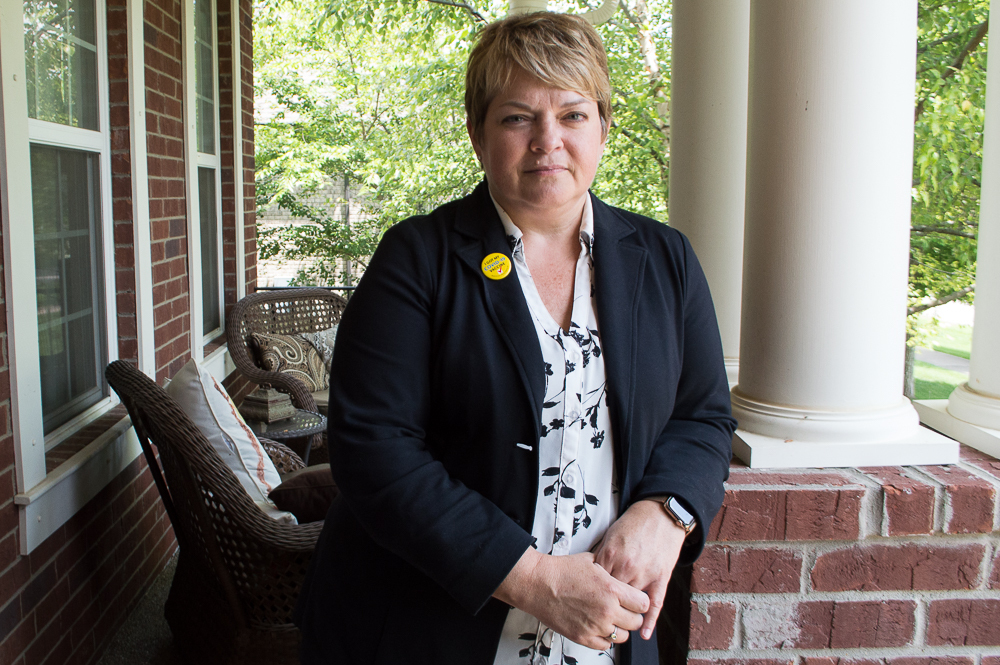
Dr. Michelle Fiscus’ phone hasn’t stopped ringing.
“My husband, thankfully, is now sort of my PR manager,” she says. He even gives her a hand signal when it’s time to switch from one of her back-to-back interviews to the next.
“I had no idea how this story would blow up when I sent my statement to the Tennessean newspaper on Monday,” she says.
Fiscus is the former medical director of Tennessee’s immunization program. She was fired from that position this week and has since landed squarely at the center of a national controversy. She says she was ousted because of an ongoing battle between science and politics.
Her story starts back in May, when some healthcare providers reached out to ask her if they could vaccinate teens without their parents’ permission. Fiscus sent back guidance from health department lawyers, including language that was established by a court case decades ago.
A month later, that memo and ads encouraging teens to get vaccinated became the topic of a heated debate in the legislature. Republican lawmakers who were already skeptical about the vaccine, like Sen. Janice Bowling, saw it as the state trying to go behind parent’s backs.
“We see things that have gone out from the department of health encouraging 12-year-olds to come get a shot,” she said. “It’s very disconcerting to see the letter or memo from Dr. Fiscus.”
Dr. Lisa Piercey, head of the health department and Fiscus’ boss, defended the work at the hearing.
“I think there’s a sense that we are hiding in dark alleys and whispering to kids, ‘Hey, come get vaccinated.’” she said. “We’re not. We’re not doing that.”
But a month later, Piercey fired Fiscus, with no reason given.
To Fiscus, the reason is simple: politics.
“She probably has her political future on her mind when she’s making some decisions like this,” Fiscus says.
Piercey told the Tennessean in May that she has aspirations for elected office. She, and a health department spokesperson, declined to comment for this story.
Fiscus feels she was a sort of political pawn, pushed out to appease Tennessee’s legislators.
“It was felt that I should have had more political awareness, and that the memo was unnecessary and it ‘poked the bear,’ ” she says. “And my response to that is: I’m not a political operative.”
Health officials are, to some extent, involved in politics — they are government employees who craft messaging to the public. But Fiscus says her firing was a symptom of a larger problem she saw during her time with the Department of Health, in which politics were put above science. That, she said, resulted in a public health workforce that felt stuck between competing interests.
“We’re often put into a situation where we are trying to adhere to CDC guidance,” she says. “But local government has decided that politically that’s not necessarily something that they want us to do.”
That was worsened by the fact that there is little job security for this kind of work when the winds of politics shift. Fiscus was able to be fired at will, due to a restructure in 2014 intended to make state government more like the private sector.
The political rhetoric around COVID and vaccines has a cost. Nationally, health leaders have left their positions in droves. About half of the country’s immunization directors have left their posts since 2019, according to their professional association.
Here in Tennessee, Fiscus says another cost is that the health department has been muzzled on vaccine outreach.
“We have funding like crazy from the CDC but can’t find any avenues to spend it,” she says, “because we aren’t allowed to do outreach and promote things like vaccinations.”
Dr. Lee Savio Beers is the president of the American Academy of Pediatrics. She says what is happening in Tennessee will ultimately harm the public.
“There’s a tremendous amount of misinformation out there,” Beers says. “So if we’re not sharing accurate information to counter the misinformation that’s out there, I think that’s also a very dangerous precedent.”
Beers says the Tennessee health department’s outreach, especially to young people, was standard in public health communications across the country. But she says no other state has reacted like Tennessee has — although the national attention may change that.

